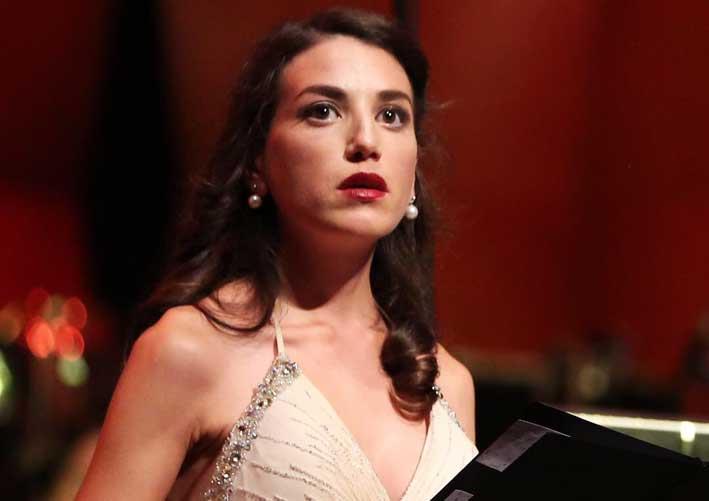After five exciting days of concerts, the much-awaited 15th edition of the popular International Spring Orchestra Festival will wrap up with a staging of Victor Ullmann's The Emperor of Atlantis or Death's Refusal on 19 June. Ullman wrote this one-act opera about dictatorship and oppression with poet Peter Kein, its librettist, while interned in Theresienstadt during World War II. This will be the first time it is performed locally, and it is being produced in collaboration with the Valletta Cultural Agency. Taking on the main roles will be Clare Ghigo, Ken Scicluna, Charles Vincenti, Kimberley Grech, and Louis Andrew Cassar, accompanied by Ensemble Télémaque under the direction of Raoul Lay.
Ghigo, a BOV Joseph Calleja Foundation scholar, holds a master's degree in Opera Performance from Cardiff's RWCMD and she has graced some of the best known stages in Europe, including the AlteOper in Frankfurt, Rathaus in Berlin and L'Hotel de Ville in Paris. According to Cecilia Bartoli, the most successful mezzo of our times, being a mezzo soprano can be frustrating. Music written for a mezzo's vocal range is not as plentiful as that written for sopranos, but this has not held Ghigo back, with a repertoire that includes Mozart, Monteverdi, Bizet and Rossini. "Because I'm a mezzo soprano I tend to sing roles which are male," says Ghigo. "I enjoy the variety that a mezzo soprano voice offers, but I think my favourite role is Rosina from Rossini's Barbiere di Siviglia. I like that she's feisty but also honest."

Her role in The Emperor of Atlantis is that of the Trommler, or drummer girl, a character that is anything but honest. Trommler is, in fact, the accomplice and enabler of the dictator known as The Emperor, and the two characters represent Adolf Hitler and his lover and confidante Eva Braun. The opera itself was written in the concentration camp of Theresienstadt, which was disguised as a Jewish settlement where the arts were promoted. In reality, the place is often referred to as death's waiting room. Ullman wrote it just nine months before being taken to Auschwitz, where he was executed two days later. Unfortunately, The Emperor of Atlantis was never allowed to be performed at the concentration camp because, although it is steeped in allegory, the Nazi soldiers realised that it was a criticism of Hitler and his regime.
"The opera is musically quite difficult but there is a lot of comparison to jazz, folk music and classical music, so it's very accessible," notes Ghigo. "It is also extremely relevant in today's times, especially during this pandemic. When you consider that Ullman and the other musicians that were at Theresienstadt never stopped composing, even in those terrible conditions, it's a lesson for us all. This opera only survived because, before being sent to Auschwitz, the composer gave the score to a friend of his who survived Theresienstadt."
Apart from setting an example of resilience in the face of adversity, this particular opera is also ideal for these times for different reasons: it only needs six singers and a small orchestra, which reduces the number of people inside the theatre, and it is not as expensive as a fully staged opera. However, a smaller cast also puts more pressure on the singers. "Having a one act opera is more difficult than having a longer opera. Since this opera has a cast of only six people and it doesn't have a chorus or other secondary roles, it's harder because it means that the singers need to do all the work," Ghigo explains, adding that the fact that The Emperor of Atlantis is only semi-staged is unfortunate, but it also makes the story feel more real.
Ghigo feels that the message of this opera is particularly timely, too. "It is about morality: even in a time of pandemics and general hysteria, we should not forget morality and what makes us human," she concludes.
The Emperor of Atlantis will be performed in the Michel'Angelo Grima Hall at the Mediterranean Conference Centre in Valletta on Saturday 19 June at 8pm. To book tickets and for information about this and other concerts in the ISO Festival, visit www.teatrumanoel.org.mt, call on 2124 6389 or email [email protected]. Tickets must be booked in advance and cannot be purchased at the door. The ISO Festival is supported by Arts Council Malta.